#Philosophy of horror
Explore tagged Tumblr posts
Text
Writing Psychological Horror Is Hard
Writing horror is hard for me.
I think it is perhaps the clearest example, at least when I'm the subject, of the difference between being the author and being the audience. I find it extremely difficult to know what will creep out someone who doesn't know all the behind-the-scenes details of what is happening. This is despite my considerable experience as a consumer of [psychological / environmental] horror media.
When I think about the things that scare me, or maybe "unsettle" is a better word, it usually comes down to two things: 1) narratively plausible violations of the laws of nature; and 2) foreboding, i.e. the slow-building setup that something bad is coming—something that is specific enough to be apprehensible but still ambiguous enough to be cloaked in mystery.
But! Not just any attempt at these things will actually work. There is definitely a secret sauce that makes some efforts fail and others succeed.
In the game Oxenfree, probably my favorite horror game of all time, there is a scene on the "Find Clarissa!" subplot where Alex et al. are in something akin to a classroom in an abandoned military base on an uninhabited island, and a discordantly upbeat and normal-sounding midcentury-style gameshow host is talking to them through a haunted radio asking them questions in a game of Hangman (whose figure is gradually being drawn by invisible means on the chalkboard), while a lamp overhead illuminates the room in a very unnatural light as it swings back and forth for no apparent reason. And this was one of my favorite moments in the entire game, because it was really scary. It benefitted from the existing atmospheric horror build up in the events immediately preceding it, and also benefitted from not being a narrative climax; it actually ratchets up the tension in the story even higher, without resolving anything (other than itself).
But I think that if you went purely by my description, you would be hard-pressed to create a scary implementation of this scene. I certainly would be—and I know that for a fact, because I have more or less tried it!
What is it that makes something profoundly unsettling in that oh-so-delicious manner of a good horror story? Well, the academic answer is that it's appealing to our instincts of danger: dangerous environments (like rocks or cliffs or plants, or, indeed, "the dark"), dangerous predators, dangerous people, dangerous forces (like fire and wind and water), and dangerous sicknesses (e.g. infectious disease). Most horror taps into at least one of these primal apprehensions in the human psyche. And to succeed it has to feel real, the way a roller coaster feels like you're really falling. But I don't think "the academic answer" really sheds all that much light on the mystery of actually composing horrifying situations and events.
A lot of the craftsmateship is a balancing act.
For example: You don't want to hit the audience over the head with obvious bogeymates—jumpscares for the sake of jumpscares, as it were, or having your big scary cryptid jump out in its full costume in broad daylight and look absurd—but I have also found, through experience, that it is very easy to hide horrifying details too well, to be too subtle about it—and it is extremely difficult for me to get a sense, on the audience's behalf, of how subtle is too subtle.
That leads me to an important insight: Part of the secret sauce of horror is contextually embedding horrifying story elements into a broader context. A "haunted stick of furniture" isn't going to get many people a-quailin' in their boots. It has to be more about how that object is embedded in the story. You know, like a haunted couch, or a haunted table: How do you make that scary? I don't think it can be scary on its own. Not consistently and convincingly. Instead you have to set it up ahead of time in some way(s), by providing information to the audience that you are then going to subvert or manipulate later. Yet it is all too easy to do this in a way that comes across like a paint-by-numbers exercise: "Wait a minute! Wasn't this couch pointing the other way earlier?! GASP!!" No one is gonna be scared by that. It's not enough.
Ultimately, I think scaring people successfully, in the psychological horror sense, therefore involves an element of overwhelming their ability to cope with and anticipate environmental changes, which assumes an elaborate environmental structure that you're going to have to set up, in non-obvious ways, earlier in the story. You have to give them expectations about how things will change and then either gradually go beyond that magnitude of change or else go in a different direction of change entirely—usually the former. Psychological horror is all about the fear of the jumpscare that never comes.
But I'm also just spitballing for the purposes of this essay. I don't really know. I struggle with this stuff!
It really is an art form to be able to scare people in this way.
Additional, medium-specific difficulty comes in the fact that the written media that I work in does not have access to a scary soundtrack or sound effects or voices, or to scary visuals and visual effects. Written text does have the corresponding advantage of having unfettered access to the reader's imagination, allowing them to essentially self-select the personally scariest interpretations of some of the details of a scene. But taking full advantage of this power is not easy at all; you have to put the right kinds of details in, and you have to do so in a digestible format, all without cluttering the flow of the story.
I have been doing a lot of Galaxy Federal writing lately, and have been trying to write some of the "scarier" bits and pieces in it, and I almost resent how totally clueless I am in regards to whether I am hitting the mark to my satisfaction! 😮
38 notes
·
View notes
Text
What is being? Horror allows us to philosophically engage with this question, to philosophically engage with life itself, while simultaneously correlating the absurdity of our responses with the natural order of things. In other words, in order to consider the existence of impossible life forms, we must reaffirm our own body consciousness. And by reaffirming our own body consciousness, we will reaffirm the existence of the world-without-us. Horror, then, is the permission to speculate beyond our own limitations as a species, including an inability to progress beyond base savagery, to overcome the inherent failure of communication, and to truly understand the concept of being without thought.
David Peak, The Spectacle of the Void
152 notes
·
View notes
Text
"The world is increasingly unthinkable—a world of planetary disasters, emerging pandemics, tectonic shifts, strange weather, oil-drenched seascapes, and the furtive, always-looming threat of extinction."
- Eugene Thacker, Horror of Philosophy Series
#philosophy#horror#horror of philosophy#quotes#eugene thacker#philosophy of horror#extinction#death#cosmic horror#planetary disaster#pandemics#earthquakes#natural disasters#unthinkable#book quotes#literary quotes#philosophy quotes
4 notes
·
View notes
Text

so ur saying this *isn't* about me??????
#cats of tumblr#primprim#catblr#black cat#cats#literature#david peak#horror philosophy#philosophy of horror#the spectacle of the void
4 notes
·
View notes
Text

watched Dracula’s Ex-Girlfriend today. took approximately 6+ hours to made this piece and love the result
#art#arte#drawing#artists on tumblr#digital art#illustration#digital painting#brandon rogers#morgana ignis#philosophy tube#abigail thorn#vampire girl#fanart#gothic horror#vampirism#vampire art#vampire aesthetic#dracula's ex girlfriend#dracula's ex-girlfriend
889 notes
·
View notes
Text
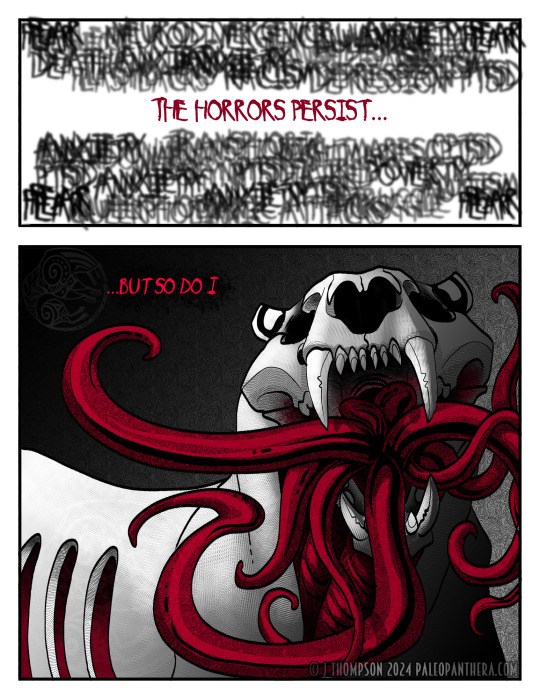
...I haven't given up yet. (In spite of the character's design this is indeed positive.)
#art#drawing#comic#comics#webcomic#the horror persists#but so do i#palaeo's philosophy#palaeo#palaeosinensis#moro#monster#demon#skull#skulls#big cat#horror#body horror#gore#red#ptsd#cptsd#anxiety#fear#digital art#tiger
2K notes
·
View notes
Text



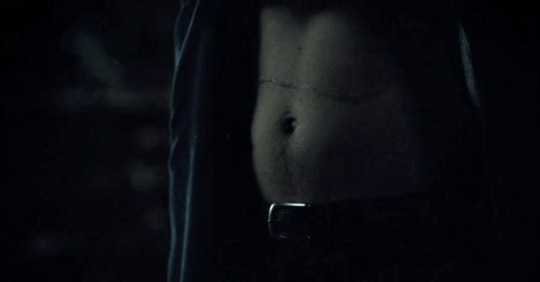

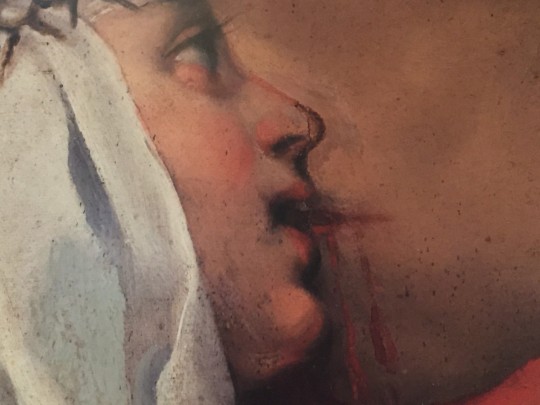

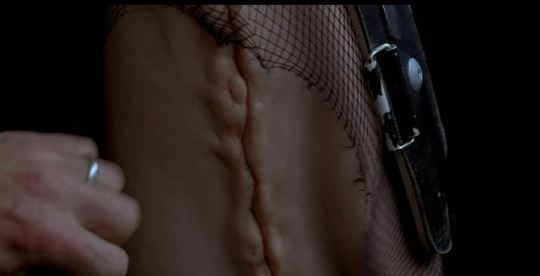
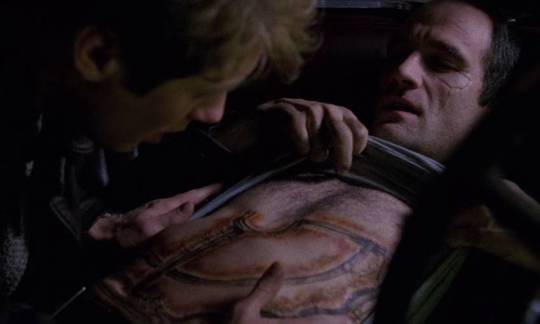
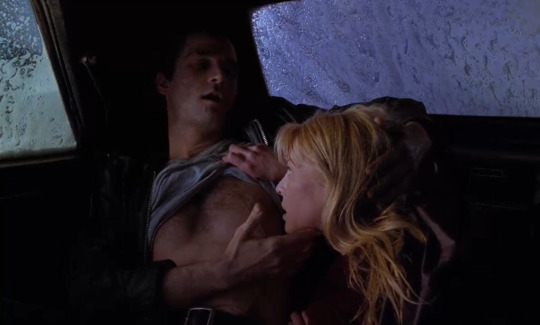

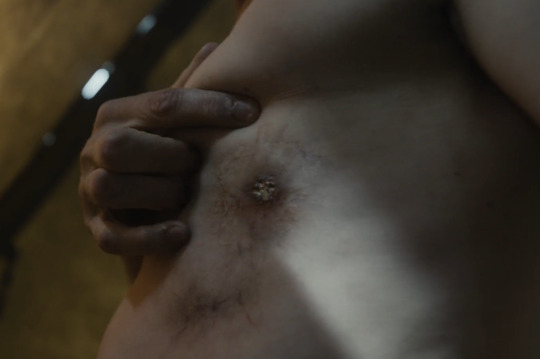


wound, eroticism and subjectivity
the holy wound, attributed to jean le noir / the incredulity of saint thomas, guercino / the body of signification, elizabeth grosz (in: abjection, melancholia, and love: the works of julia kristeva) / hannibal nbc / the incredulity of saint thomas, caravaggio / saint catherine drinks the blood of christ, francesco vanni / the body of signification, elizabeth grosz / crash, david cronenberg / side wound of christ (england, 15th century) / the terror amc / the terror of pleasure: the contemporary horror film and postmodern theory, tania modleski (in: the horror reader)
#this is extremely stereotypical tumblrina content i apologise#i had to fabricate an excuse to watch james fitzjames side wound scene 25 times in a row#hannibal#the terror#side wound#web weaving#philosophy/theory tag#david cronenberg#crash 1996#horror#body horror#scars tw#🦇
4K notes
·
View notes
Text
I love The Substance's undying dedication to grossness as an aesthetic. It's not just that it's body horror, it's the kind of body horror that lingers on needles being pushed into skin and then supernaturally enhances the length of the needle and the scabbiness of the entry point just to milk your reaction. I love that that body horror exaggeration effect is present in mundane things too, like endless shrimp or a trashed apartment or old person skin. It's just part of the gaze that the movie forces you to take on, and I think it's both good at that aesthetic and smart with that aesthetic. It uses the emotional strength of that gut feeling to tug at your self hatred, or to make you hate the asshole TV producer, or even to simulate a bad relationship with food.
This is a harder point to articulate, but I feel like the substance understood something about what I like about horror movies: that there is this catharsis aspect to the grossness which you can only really properly reach the heights of by exaggerating it to the point of ridiculousness. I like the ending not just because it's crazy but because it knows what I'm looking for in crazy. It's a movie for people who love grossness and a movie that shows you how to love grossness.
#the substance#I wrote this last night and I'm thinking yeah whatever post it#I wish there was a genre of horror movie that was evil dead and the substance like 'meditations on blood flying everywhere' movies#like I like body horror but having body horror in it doesn't guarantee the philosophy the movie is gonna have about body horror
326 notes
·
View notes
Text
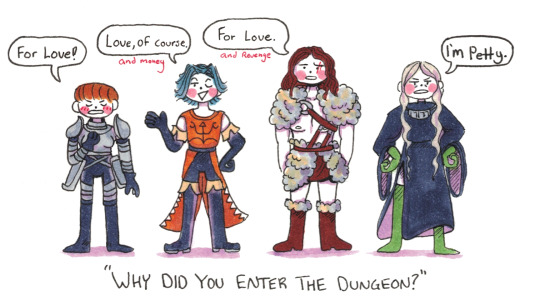
Welcome to the Dungeons of Fear and Hunger.
#Fear and Hunger#D'arce Cataliss#Cahara#Ragnvaldr#Enki Ankarian#Unlike Dungeon Meshi - I cannot in good faith recommend this game to a broad audience.#My background with F&H goes as follows: I am hanging out with a friend. He says “hey try this game I've been playing.” I say “Okay!”#I have never heard of this game. I pick the mercenary. I go through 5 min of character history and background. I am mauled to death by dogs#It took me 4 resets to even get in the dungeon. But I finally get there. I am caught by a guard. He cuts off all but one of my limbs#I am forced to crawl around in a blood and corpse pit until the game tells me 'give up idiot'.#I reset. I am mauled by dogs again. I realize this is not for me but I am intrigued enough to go home and watch some playthroughs#And WOW what an interesting game it is! I really do appreciate games that blend their design philosophy with the theme it wants to set#This is a game about fear and hunger. And persevering. And penis (my god is there a lot of penis)#I recommend this to people who like extremely challenging games and can handle the many *content warnings* within this series#If the idea of Bloodborne/eldenring and undertale having a little RPG maker baby sounds appealing to you - give it a shot#It's made by ONE GUY and it's a great horror game. I am just really bad at it.#My friends just enjoy putting me in situations where I scream and yell. We don't talk about the corn mazes. Or the other horror game nights#Apparently I'm funny when I'm Scared!#As people who follow me on twitter might know; I am deep in the pits of this series right now. I will be back with more art.
1K notes
·
View notes
Text
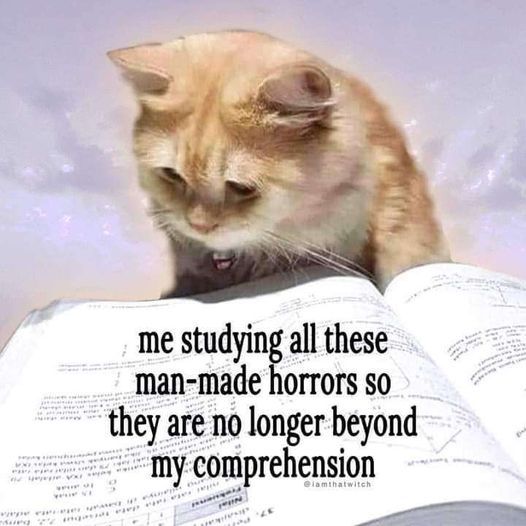
1K notes
·
View notes
Text
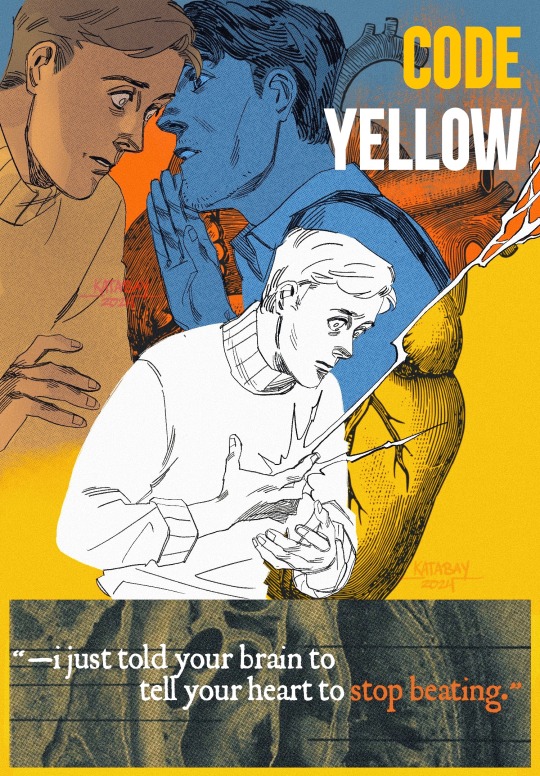
”—ah. seems like mother goose has been playing around in your egg salad. if you won’t dance to that tune, I got others.”
honestly, the would you kindly scene is whatever to me*, code yellow is the more interesting violation/betrayal of the body because of how beautifully it escalates the Fontaine reveal/betrayal and shows how ugly some of those ‘locks and keys’ that Tenenbaum mentions are. not only have you been a tool in another man’s hand this entire time, it goes deeper. your body is not your own.
*there used to be a meandering thought here about the would you kindly scene, but it was really just talking around the fact that I spent way too many years seeing people discuss it in the most insufferable and reductive ways possible when it’s a combination of three or four other things that make that moment compelling lmao
collage credits: heart one/heart two
��� places I’m at! bsky / pixiv / pillowfort /cohost / cara.app / tip jar!
#bioshock#honestly if Fontaine was upfront about wanting Ryan dead I’d have done it after ten minutes of walking around Rapture#I have (squints) somehow two ideas about suchong I want to get out. one more abt atlas and manipulation#there’s a specific kind of family adjacent horror occurring in the text and it’s WILD that suchong is the one we hear Jack refer to#in familial terms while two other men force themselves onto you by appropriating the father role over your body :)#to be clear tho I don’t actually think Fontaine had any familial sentiments towards Jack he’s just occupying Ryan’s space now#WHEEZING can you tell that I think every ‘wow a man chooses/a slave obeys is so deep!’ think piece is stupid as hell#thankfully it’s not as prevalent as it was a decade ago but my god people thought it was the height of philosophy for too long#ANYWAY ALL OF THIS TO SAY. there’s a certain kind of trans anxiety/horror in having your body betray you. or generally body#anxiety. but I read a lot about it in a medieval gender context so it’s trans to me. amongst other things.
423 notes
·
View notes
Text
One thing that I feel is really interesting and often forgotten about Essek is that fundamentally, his characterization has been from the start based upon his desperation for external perspectives and connection, which, along with much of his narrative and mechanical positioning, means that he actually has an extraordinary and almost (but not actually, as I'll show) counterintuitive capacity for both growth and trust.
(Buckle in. This is a long one.)
In particular, I would argue, knowing now that many places where the plot touches Ludinus have long been marked for connecting back into the current plot, that he was quite possibly built as a prime candidate for radicalization by the Ruby Vanguard. He felt isolated from his culture, he was desperate for other connection, and he was certainly of the type to believe he was too smart to be drawn into such a thing, given his initial belief that he could control the situation and the fallout. If things had gone any other way, he easily could've been on the other side by now.
As such, he has been hallmarked by being fairly open to suggestion, perhaps for this reason, but the thing about that kind of trait is that it is both how people are radicalized and deradicalized. This is certainly true of Essek, who experienced genuine kindness and quite frankly strangeness from the Nein and was able to move from the isolation the Assembly had engendered to meaningful and genuine connection, largely propelled by his own internal reflection. By the time Nein are aware of his crimes, he's already begun to express regret to an extent and, furthermore, doubt in the Assembly, including explicitly drawing a line against Ludinus, even in a position where he was on his own and probably quite vulnerable.
Similarly, when the Nein reach the Vurmas Outpost some weeks later, he has moved from regret for the position he's ended up carrying a heavy remorse. This makes sense! He's fairly introspective, seems used to spending a lot of time in his own head, and was left with plenty to mull over. It's not some kind of retcon for him to have progressed well past where the Nein left him; it just means he's an active participant in the world who has done his own work in the meantime.
This is another interesting aspect to him. I've talked about this a bit before but I cannot find the post so I'll recap here: antagonists in D&D have significantly more agency than allied NPCs. Antagonists are active forces, against which the party is meant to struggle; allies are meant to support the PCs, which means they tend to be more passive in both their actions and their character growth. Essek was both built as an antagonist, in a position that gives him significant agency, and also was then given significant opportunity to grow specifically to act as a narrative mirror for Caleb's arc. Even when he becomes a more traditional D&D ally, he still retains much of that, though he occupies a supporting role.
I believe that this is especially true because of the nature of Caleb's arc, which I've already written on; the tl;dr of this post is that Caleb is both convinced that he is permanently ruined and also desperate to prove that change is possible. Essek is that proof, because he is simply the character in a position to do so. But this also means that his propensity for introspection and openness is accentuated! He has to do the legwork on his own, for the most part, because that's where he is in the meantime.
But he still ends the campaign necessarily constricted; he is under significant scrutiny, he's at risk from the Assembly, and he goes on the run fairly soon after the story ends. He spends most of the final arc anxious and paranoid, which is valid given the crushing reality of his situation. It would be very easy to extrapolate that seven years into this reality, he would be insular, closed off, and suspicious of strangers, even in spite of the lessons he's learned from the Nein and their long term exposure.
So seeing his openness and lightness now is surprising, but at the same time, given this combination of factors in his position in the narrative over time and his defining traits, it's not by any means unreasonable.
But one thing that I found so delightful is how much trust he exhibits, which is obviously a wild thing to say about Essek in particular, given much of what he learns is both earning and offering trust, which was something he says explicitly in 2x124 that he's never really experienced: "I've never really been trusted and so I did not trust." It makes up much of the progression of his relationship with Caleb, and the trust that he is offered by the Nein in walking off the ship is the impetus he needs to grow.
But I think it's easy to talk about trust when it comes to people who have proven themselves to you or to whom you've ingratiated yourself, and that's really the most we can say about Essek by the time he leaves the Blooming Grove. There is this sense in a lot of discussion of trust (not solely in this fandom) that it is only related to either naivete or love, but there's far more to it. Trust at its best is deliberate—cultivating an openness to the world at large is a great way to combat cynicism and beget connection instead. It allows a person to maintain curiosity and be open to experience, but it can be incredibly difficult to hold onto.
It is clear that the Essek we meet now is a very pointedly and intentionally trusting individual. He trusts Caleb and by extension Caleb's trust in Keyleth, as he shows up and picks up a group of strangers from a foreign military encampment and walks in without issue. He trusts the Hells to follow his lead moving through Zadash and to exhibit enough discretion so as to avoid bringing suspicion upon all of them. He trusts that Astrid will respond well to his entrance, but he also trusts himself and the Hells enough to execute a back-up plan in the case that she doesn't. In the end, he even trusts them enough to give them his name and identity.
He doesn't scan as someone who has spent half a dozen years living like a prey animal, afraid of any shadow he runs across in an alley, withdrawn into himself and an insular family, which would've been an easy route for him to take. He scans as someone who has learned the kind of trust borne of learned confidence and a trained eye for good will and kindness, which are crucial weapons one would need for staving off cynicism in his circumstances—as if he has survived thanks more to connection and kindness than paranoia and isolation. (If we want to be saccharine about it, he scans quite poignantly as a member of the Mighty Nein.)
So it is easy to imagine this trust and openness as a natural progression of his initial search for perspectives external to his own cultural knowledge. Though he makes those first connections with the Assembly to try to vindicate his personal hypotheses, he finds in them exposure to the deepest corruption among Exandrian mortals, which could've—and did, for a time—turned him further down that same dark path.
But it's also this same openness to exposure from the wider world that allows the Nein to influence him for the better, and in spite of the challenges he's certainly faced simply surviving over the past seven years, he seems to have held onto this openness enough to move through the world with self-assurance and a willingness to extend the kinds of trust and good will that he has been shown.
(I would be remiss not to mention that I was reminded about my thoughts on this by this lovely post from sky-scribbles and their use in the tags of 'light' to describe Essek's demeanor this episode, which is really such an apt word for it.)
#something something hope is a weapon hope is a discipline hope is a garden to cultivate!!!#HE'S SO GOOD HE IS TRULY EXEMPLAR OF THE WHOLE PHILOSOPHY OF THE NEIN AND I DO NOT THINK THAT'S AN ACCIDENT#truly just like. enormous proponent of letting trust and curiosity into your heart regardless of the horrors.#it's hard and it makes you more vulnerable and sometimes it hurts so so much but it will also save your fucking life!#cr spoilers#critical role#essek thelyss#cr meta#I was gonna apologize for the length but I'm not sorry. I'm also not sorry for being insane about him but he's so special to me.#head in my hands he's so GOOD HE'S BEST BOI! GUIDING LIGHT NORTH STAR!!! LOOK AT HIM!!!#also truly if i had two nickels for a span of time with no essek sightings where I wrote a lot of fic#with deliberate personal acknowledgment that I was writing some pretty maximal arcs for him in terms of character growth#and then end up getting essek for half an episode and having to go OH WE'RE GOING THAT FAR ACTUALLY. FUCKING INCREDIBLE.#yanno. two nickels. but good lord I am thriving that it's happened twice#augh this is ONE of the pieces I need to write this week. we're not gonna talk about it
342 notes
·
View notes
Text





#girlblogging#coquette#hyper feminine#tumblr girlies#this is a girlblog#lana del rey#2014 tumblr#cinnamon girl#lizzy grant#girl interrupted#autumn#fall aesthetic#pumpkin spice#uggs#chai latte#philosophy#juno#twilight#forks washington#bella swan#new moon#sofia coppola#jennifer's body#wes anderson#it girl#halloween#october#horror movies#september#americana
87 notes
·
View notes
Text







my neurotic goat.
Death The Kid.
#fan art#soul eater#soul eater fanart#soul eater fandom#death the kid#blair soul eater#maka albarn#anime#retro anime#art design#design philosophy#artists on tumblr#y2k nostalgia#y2kcore#black star#2000s aesthetic#art#swag#artists of tumblr#character design#horror aesthetic#dark academia#anime and manga#spooky#spoooky aesthetic#neurotic#neurodivergent#goat#real#sally
40 notes
·
View notes
Text

" Shitty Philosophy "
Acrylic painting on Canvas.
Size 23 x 30 cm.
#Shitty Philosophy#vaxo lang#vaxolang#vaxo art#creepy art#contemporary art#contemporary artist#acrylic painting#creepy#dark art#macabre artist#macabre art#astethic#horror#horror art
139 notes
·
View notes
Text


@theabigailthorn
#art#arte#drawing#dibujo#dracula's exgirlfriend alexander#dracula's exgirlfriend fay#dracula's exgirlfriend belladonna#dracula's ex girlfriend#dex#fan art#vampire aesthetic#vampire girl#vampirism#vampire core#gothic horror#goth aesthetic#gothcore#digital drawing#digital art#digital painting#digital illustration#philosophy tube#brandon rogers#morgana ignis#dracula's ex-girlfriend#abigail thorn#vampire art
411 notes
·
View notes